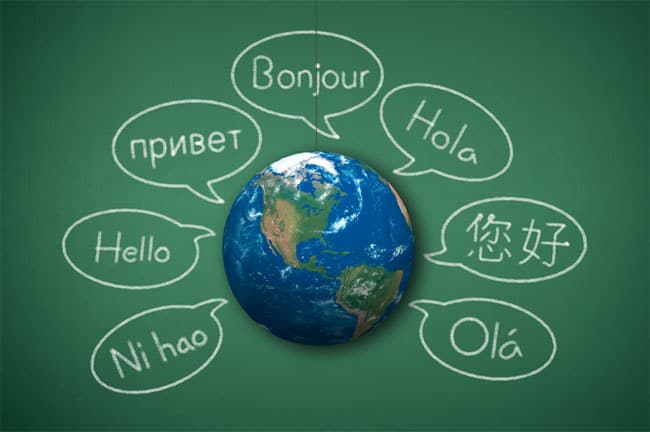
Quality language translations have become vast and important to a lot of industries. It has grown so much to an extent that it’s become a service that is being sought after. If you had asked me years ago, why people sort after translation services, I honestly wouldn’t be able to tell you why that is the case. You ask me the same question in 2020 and I will give you at least ten reasons I sought after translation services for my own benefits. Let no one tell you that translation doesn’t offer any benefits because I can tell you for sure, there are a lot of benefits that you will enjoy from it.
Translation has helped bridge gaps that individuals constantly used to battle with and in this case, it is the communication gap. Translation is helping companies reach a multivariate global audience by talking in a language their clients can understand and relate to. Regardless of what you want to use it for, translation has made it possible for business owners to grow their businesses to an international level. With the world becoming a global village because of the emergence of the internet, and translation being a service offered widely there is an incredible global success. That’s the reason people have woken up to quality translation and its importance in this era of globalization.
Below are some benefits of translation today:
What Is The Significance Of Translation In Today?
1. Growth of Multinational Companies
With the emergence of social media and the internet, it is easier for a business to grow to a multinational level. This is because the internet allows people from different walks of life, from different countries, from different cultures, and from different races to have access to your business. We are living in times where a business in New York City is accessible by people in France, Spain, Kenya, India you name it. The only way you can cater to your audience from these countries and grow your business in those countries is by coming up with a strategy that brings inclusion. Not all countries are English-speaking countries and so you must come up with a strategy that allows this audience to interact with your product and services. Translation helps you bridge this gap and bring inclusivity to your business which further brings more business profit and growth.
2. The Need for Outsourcing Quality Language Translation Services
The growth of translation as a sort after service has really opened people’s eyes is sourcing for companies that offer it. Before it became a thing, people would take any level of translation without thinking about the impact it would have on their businesses or their companies. Translation service providers have had to take their services a level higher. As aforesaid, inaccurate translation can alter the intended message for your business, and have negative effects on your operations, especially in a new country. If you are looking to get a foothold in a foreign region or expand your business globally it is important to identify and partner with a company that can provide you with accurate and worthwhile language translation services. The most important business destinations of today are the BRIC countries, i.e. Brazil, Russia, India, and China. Anyone with proper business acumen will know that it is in these emerging markets that new fortunes will be forged, as it is widely forecasted that the BRIC countries will overtake the G7 countries within twenty years in the amount of business revenue earned. For many businesses, the biggest question is how to outsource translation services, and what they can outsource. Outsourcing not only offers a cheaper, more effective alternative to traditional translation services but also offers you access to the expertise and technical resources that translation requires.
3. Cultural Interchange
Have you ever wondered how easy it is for music to cut across the boards and be enjoyed by people from different walks of life and cultural preferences? This is because of translation. Music, literature, films, and various other art forms transcend global boundaries because of the way they are effectively translated to reflect local languages and sentiments. Before translation, it was hard for someone in England to watch a French film. This is because of the language barrier and the mere fact that they wouldn’t understand anything. With time, things like captions and subtitles were introduced. These are some form of texts that are usually translated from the original audio to different languages so that people from other countries can interact easily with foreign films. As time went by, another form of film translation was introduced, and this one was known as dubbing. This is a film translation process that involves translating film audio to another language in the same format. This has made the film production industry really grow and in the same breath has made it possible for people to enjoy the diversity that is our different cultures as individuals.
4. A Nation’s External Affairs
In a world where countries are coming together for the general good, translation has really worked to the benefit of a lot of different country’s external affairs. It is known and if you do not know this, then I’m here to inform you that all the countries in the world don’t speak a common language. Different countries have different Native languages and the only way they can come together to discuss world problems is if they could speak one common language across the board. Today, international diplomacy is the most important aspect of a nation’s external affairs. Be it a global summit or new economic deal, diplomats and world leaders always present their ideas and thoughts in a language they are comfortable in. It is of great importance that ideas are translated and expressed in a non-condoning, and accurate manner, barring which can lead to significant problems between the diplomatic relations of two or more nations.
5. Accurate Transfer of News
The year is 2020 and we are battling a global pandemic, imagine how this would have been handled or dealt with if we were all speaking a different language, and could not share news updates on what’s going on globally. Translation is the reason countries can share news updates on what is going on, how they are dealing with the pandemic and the different measures they are taking to ensure that the pandemic doesn’t stretch into 2021. Regardless of whether the news is coming from a local source or an international source, translation has helped to break that language barrier that would have prevented clear communication if had we been in the year 1900. Imagine a world without translation and living in France trying to depict news being transferred in the Zulu language which is a language that is predominantly spoken in South Africa. It would be hard for this to be possible.
6. Boost in Tourism
Tourism is a huge part of a lot of countries’ foreign income and wealth. A lot of companies make their money through tourism and I can tell you for sure that translation has played a big role in this being the case. Imagine going to a foreign country like Portugal where their Native language is Portuguese, and you only speak English and no one else but yourself speaks and understands that language. Imagine how hard it will be for you to keep up with being there for a day and then imagine going to a tourist destination where you have to spend over one week. Chances are that you will not go back to that country because the experience will not be as exciting as if you had gone to a country where the language barrier was not a thing. Countries have taken up translation to bring inclusivity in their tourism sector for other people in foreign countries who would love to visit and enjoy what they offer. It can be daunting for someone to visit a country where the language is a barrier to the extent that they cannot even enjoy what they pay for. Translation has really offered a great boost to the tourism sector in different countries. Translated tourism materials not only help tourists feel welcome in an unknown country but also boosts the country’s popularity as a tourist-friendly destination, leading to significant tourism-related revenues.





